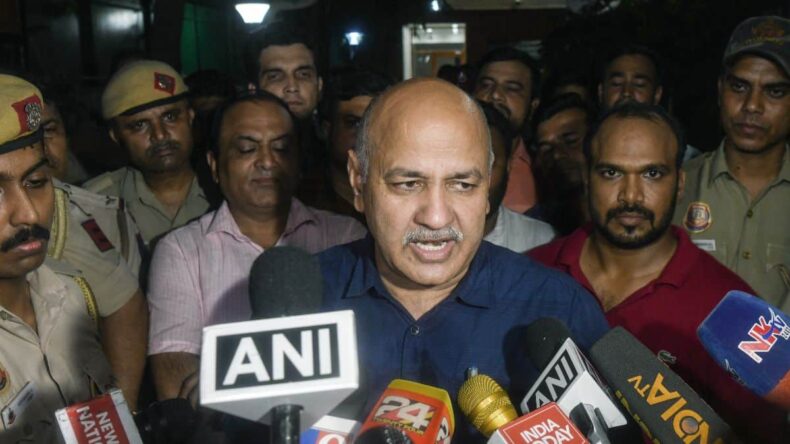New Delhi, Mar 22, 2024: In the most recent excise policy case examined by the Enforcement directorate, the Delhi court on Wednesday condemned Aam Aadmi Party (AAP) leader and former Deputy Chief Minister Manish Sisodia to judicial custody till April 5.
Sisodia was hauled before Special Judge M.K. Nagpal of Rouse Avenue Court on the last day of his ED custody, after it was extended on March 17.
The former Delhi’s education minister petitioned bail from a Delhi court on Tuesday, contending that the CBI had not uncovered any evidence implicating him and that he was neither a danger to the public. The hearing on Sisodia’s writ petition was rescheduled to March 24 by Special Judge M K Nagpal in a bid to provide time for clarification and submissions. Furthermore, the ED was asked to respond by March 25.
In the corruption case being looked into by the Central Bureau of Investigation, Sisodia is already in judicial detention.
Following the case, the court had earlier said that Sisodia played a key role in every state’s development and execution of excise policy and therefore his arrest in the money laundering charge was legitimate whilst remanding him to ED custody. The excise policy, as per ED, was instituted as a component of a program to allow some private enterprises a 12% profit on wholesale sales. It claims that such a requirement was not included in the minutes of Group of Ministers meetings (GoM).
While asserting that Sisodia was a part of the money laundering conspiracy, ED’s advocate Zoheb Hossain also asserted that the transit of corrupted money through hawala networks was being scrutinized.
Hossain claimed that the regulation was devised to assure that even some private firms received significant benefits and that one of the largest cartels was forced to control 30% of Delhi’s liquor market.
In connection with a Central Bureau of Investigation (CBI) case involving suspected corruption in the creation and execution of the now-cancelled Delhi excise policy for 2021–2022, the ED detained Sisodia on March 9 in the Tihar Jail, where he was held.
After an explanation from the AAP government on Tuesday, the Ministry Of Home Affairs sanctioned the Delhi Budget, allowing for its presentation in the Assembly. At the Delhi assembly, Finance Minister Kailash Gahlot unveiled a budget for the fiscal year 2024–2024 that is worth Rs 78,800 crore and announced nine programmes as part of the G-20 arrangements.
The ED had argued that Sisodia had granted restaurants concessions in the excise policy, such as lowering the legal drinking age, during discussions between the restaurants association and Sisodia.
The Delhi liquor policy fraud: what is it?
The Delhi Excise Policy 2021–22 is relevant to the case. It was abandoned on July 30, 2022, as a result of Delhi Lieutenant Governor VK Saxena’s recommendation for a CBI investigation into the purported flaws in the strategy.
On November 17, 2021, the rule went into effect. A retail liquor licence for 849 vends was given to private parties under the programme, which split Delhi into 32 excise zones. That signalled the end of the government’s involvement in Delhi’s alcohol industry.
Its objectives were to eradicate the liquor mafia and black marketing, boost sales, enhance customer satisfaction, and guarantee that liquor outlets were distributed fairly.












